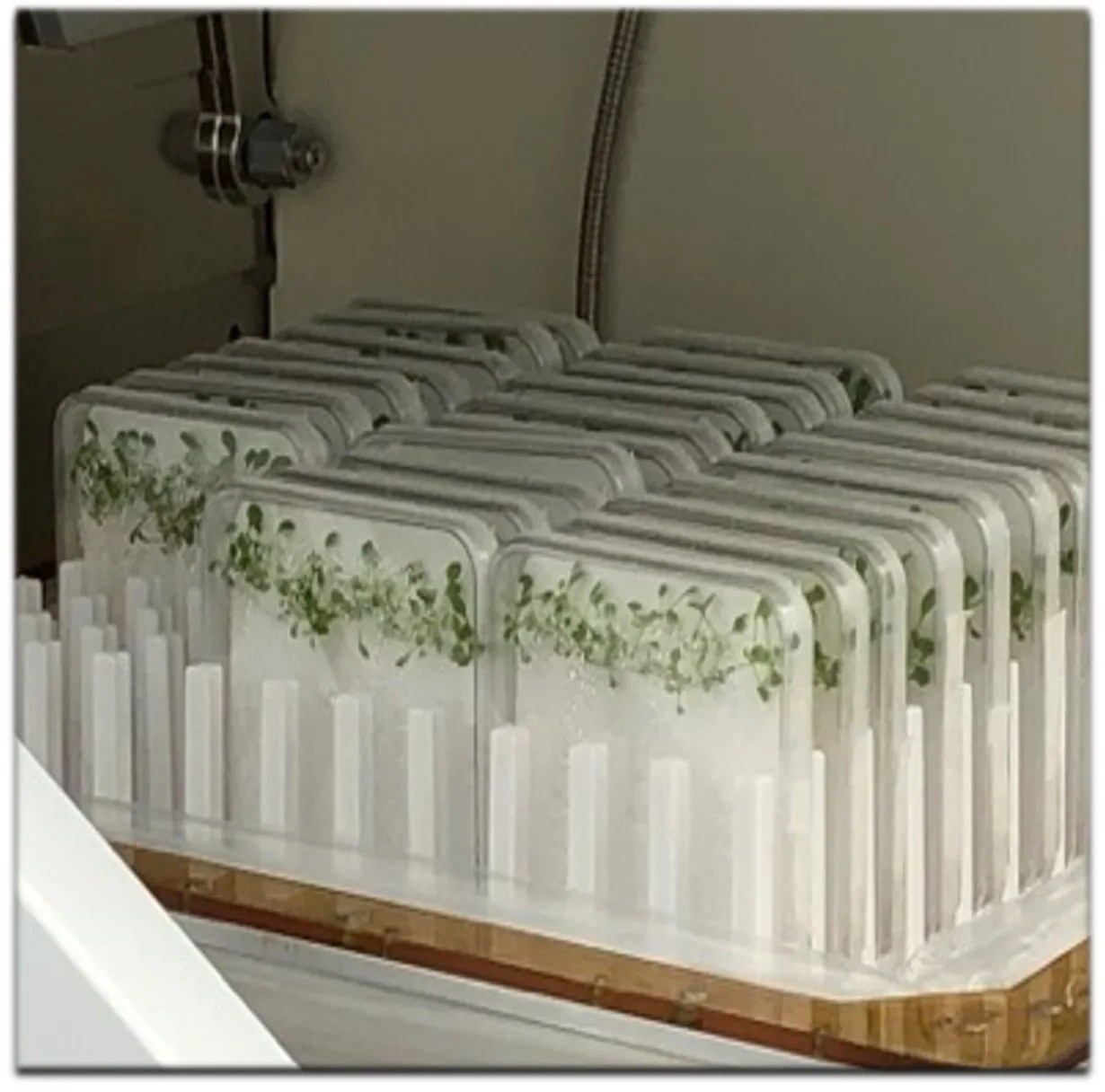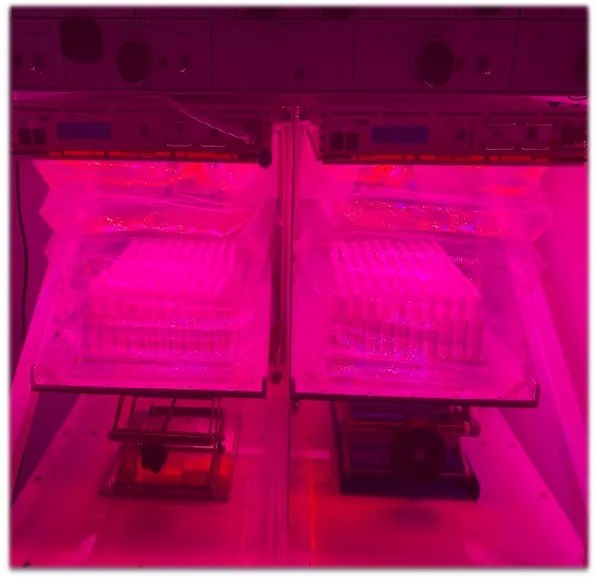Advanced Plant Experiment-07 (APEX-07)
Science Objectives
Advanced Plant Experiment-07 (APEX-07) examines how changes in gravity and other environmental factors associated with spaceflight affect plants at the level of gene expression. Previous research shows that microgravity conditions during spaceflight affects which genes turn on or off, which proteins are present and in what amounts, and the modifications made to those proteins. All of these processes are controlled by RNA, and this investigation analyzes the role of RNA regulation on gene expression during spaceflight in both roots and shoots of plants.
The hypothesis for the Advanced Plant EXperiment-07 (APEX-07) investigation is that post transcriptional regulation of RNA mediated by small RNAs plays an integral role in the differential gene expression between spaceflight and ground controls. To test this hypothesis, three objectives are addressed:
- Characterization of the transcriptome, including alternatively spliced transcripts, translatome (ribosome- associated mRNA population), and sRNA landscape of root and shoot tissue from Arabidopsis thaliana seedlings grown during spaceflight as compared to ground controls.
- Identification of genes that are potentially post-transcriptionally regulated, sRNA targets, and potential mechanisms of regulation.
- Comparison of the translatome and transcriptome data within the datasets and the previous spaceflight mRNA and the protein datasets to determine the extent of overlap.
Status
Experiment will launch to the International Space Station on SpaceX-22 Commercial Resupply Service (SpX CRS-22 ) mission on June 3, 2021. Samples return aboard SpX CRS-22 in July, 2021.
Experiment Description
The Advanced Plant EXperiment-07 (APEX-07) investigation will help NASA understand “How Spaceflight Alters Post-Transcriptional Regulation” using Arabidopsis thaliana, a plant model organism. Transcriptome level research has become an integral part of experiments because it examines how gravity affects plant gene expression and the role RNA plays on gene expression during spaceflight.
The data from spaceflight experiments BRIC-20 and Plant Signaling suggest that post-transcriptional regulation plays an integral role in gene expression differences between spaceflight and ground controls. The differential expression, abundance, and phosphorylation of translational machinery in spaceflight leads to the obvious questions: What genes are post-transcriptionally regulated and by what mechanisms? In this study, the principal investigators combine their expertise and resources to generate compatible multi-omics datasets and, ultimately, provide a comprehensive picture of transcriptional and post-transcriptional regulation. This integrated approach will address fundamental questions regarding plant adaptation to spaceflight. A transgenic line specifically designed for the transcription factor affinity prediction (Trap) analysis is used for this study.
To ensure APEX-07 science success on the International Space Station (ISS), payload development contractors perform pre-flight ground testing operations at the Kennedy Space Center (KSC) in the Space Station Processing Facility (SSPF). High fidelity experiment verification tests were performed using an ISS flight hardware, the Vegetable Production System (Veggie). Petri plates containing seeds were inserted into two Veggie units then placed in the ISS Environmental Simulation (ISSES) chamber where the Arabidopsis thaliana plants will grow as seedlings for 12 days under ISS relevant environment. In-orbit, the Arabidopsis thaliana plants will also be grown as seedlings for 12 days in two Veggie units. The crew will harvest the plants and rapid freeze them in a cold bag and preserve the samples at ultralow temperature until the samples are returned to earth for post-flight multi-omics analyses by the PI team.
Related Links
Space Station Research Explorer – APEX-07






























